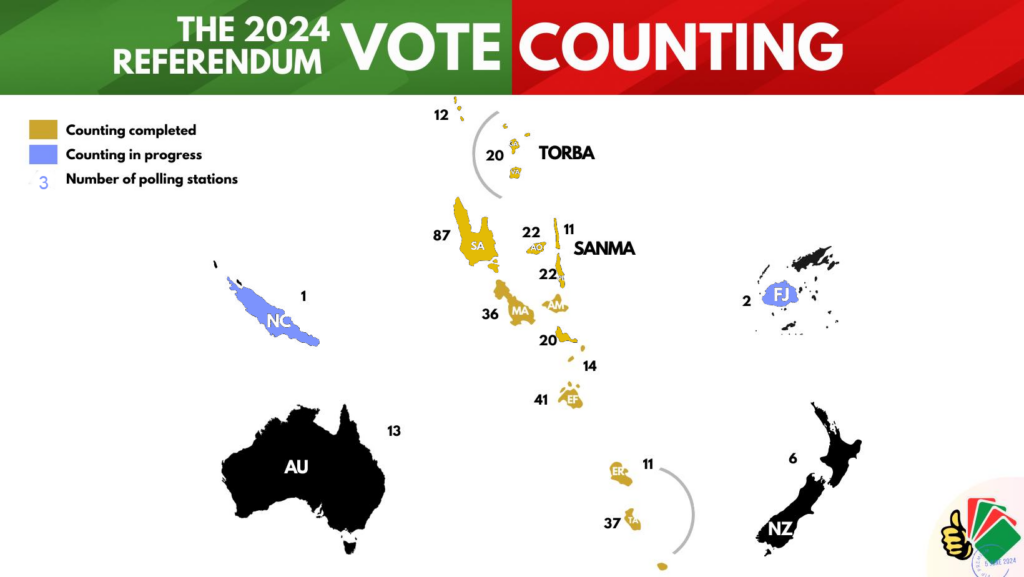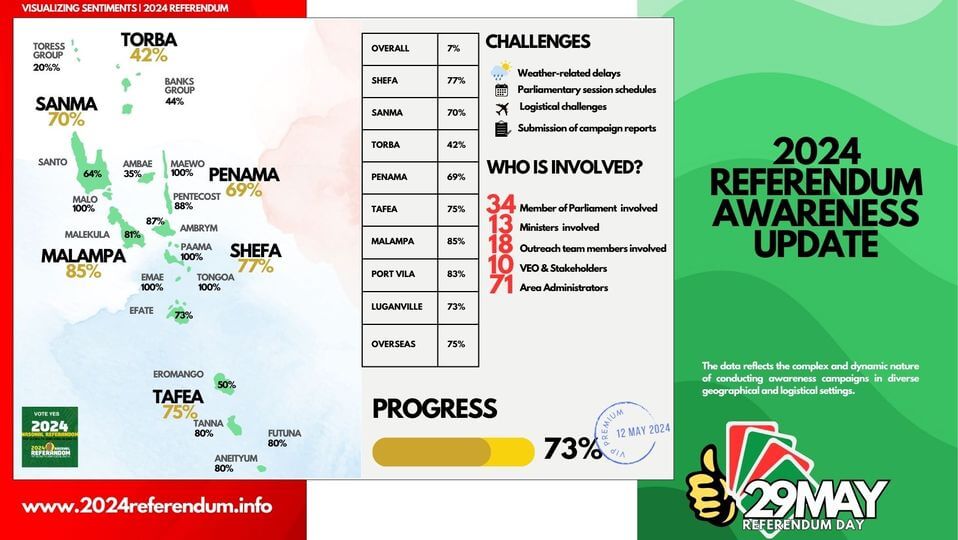On 29 May, the people of Vanuatu will be asked to vote on a referendum that aims to overcome the country’s persistent political instability. But there are questions over whether it will work. The government is aiming to end party-hopping and to force independents to join political parties and the public are to have the final say on it. It follows a slew of motions for votes of no confidence and three changes of government in 2023.
The government is putting in front of the people two proposed constitutional amendments: 17A: Vacation of Seat by Party Member. Under this amendment if a MP leaves, or is forced to resign from their political party, then their seat will be declared vacant. 17B: Vacation of Seat by Independent Member. This amendment would require those MPs elected as independents to choose a political party within three months of being elected, or their seat will be declared vacant.
Professor of comparative politics at Victoria University of Wellington, Jonathan Fraenkel, said the amendments will not work. “I think that the legislation is poorly drafted,” he told RNZ Pacific, adding “there is an experience with these kinds of laws in Papua New Guinea and the Solomon Islands”. “And in both cases, they had unforeseen repercussions.
They didn’t do what was expected.” Professor Fraenkel said in PNG crucial parts of the legislation were ruled unconstitutional in 2010, while the Solomon Islands failed to pass the necessary constitutional amendment.
He said the measures were full of loopholes and sometimes had the reverse effect – leading to more MPs becoming independents rather than joining parties. “Politicians tend to be very devious and to find their way around these things. And to find the loopholes in the legislation. There are lots of loopholes in the [Vanuatu] legislation as it’s been formulated so far.”
There is also an argument that limiting votes of no confidence undermines the democratic process, particularly in Melanesian countries where power very quickly coalesces around the dominant party.
“Certainly in Papua New Guinea, there’s been times where if you didn’t have no confidence votes you’d have blood on the streets or rioting or something like that,” he said. He said there are lots of frivolous no confidence votes pushed for where people are out to grab ministerial portfolios, but there are also votes that are needed.
This type of legislation requires the setting up, or expansion of powers, of constitutional officers, such as the speaker, but Professor Fraenkel said based on the experience of the other Melanesian nations, these posts very quickly become politicised.
“These officials are required to behave in a nonpartisan way, but the laws actually make them very, very intrusive. “So the Speaker, the principal election officer, start to make decisions about the internal mechanics of political parties – who’s the president, who’s the vice president, who’s the treasurer, who’s a legitimate candidate, who’s not a legitimate candidate. Those are very, very politicised decisions,” he said.
He said this fosters manipulation of these constitutional office holders. What can be done to bring a measure of stability Professor Fraenkel said some of the legislation being considered is the worst of both the Westminster parliamentary system and a federal system under which the people would directly elect their leader.
He said under the Westminster system there are some things that can be done, such as in Kiribati, where a vote of no confidence leads directly to an immediate dissolution and new elections, “that’s a massive disincentive to holding a no confidence vote.”
He sees the answer in tying the party strengthening legislation into the electoral system. “Usually, this is done through the proportional electoral system, and Vanuatu has the advantage that it already has mult-member districts. It just needs a few changes in order to align the electoral system better with a party strengthening mechanism.”


